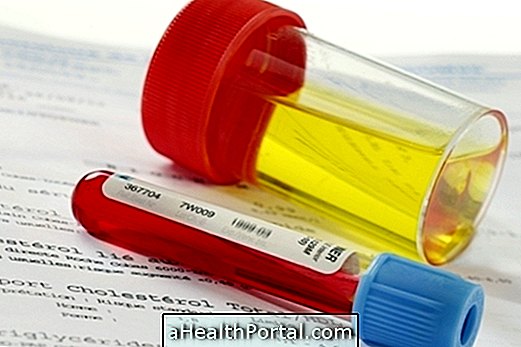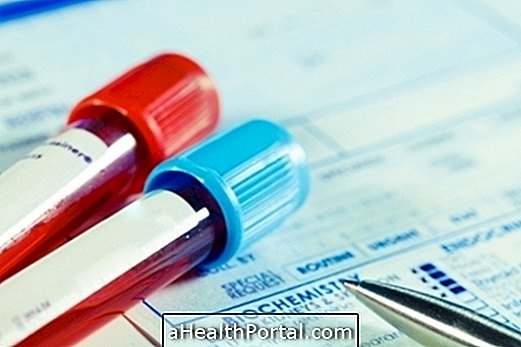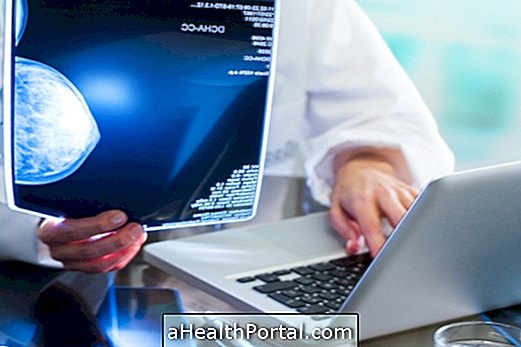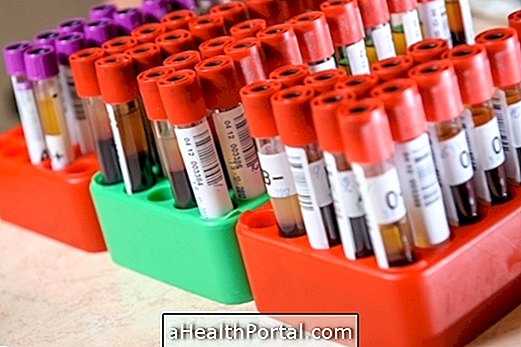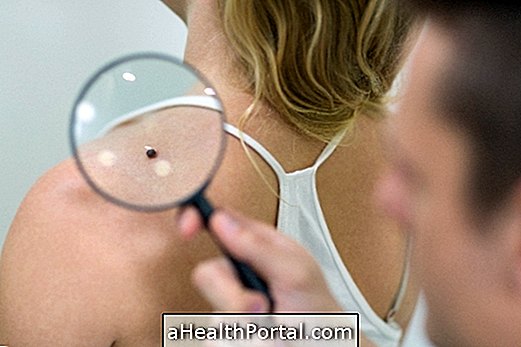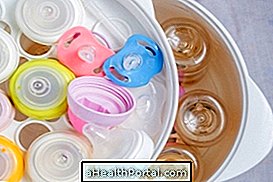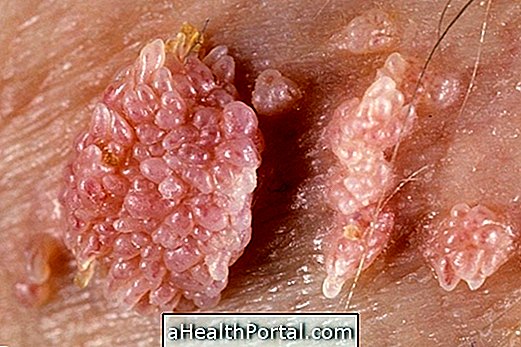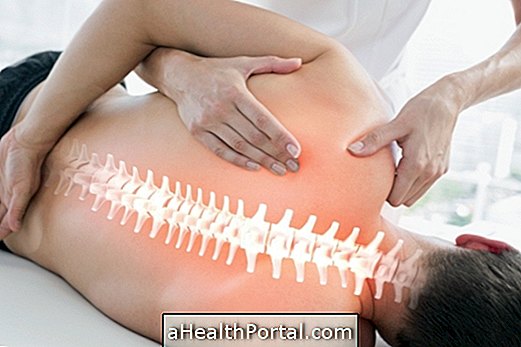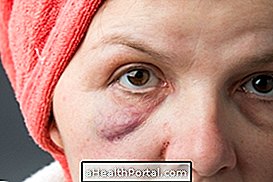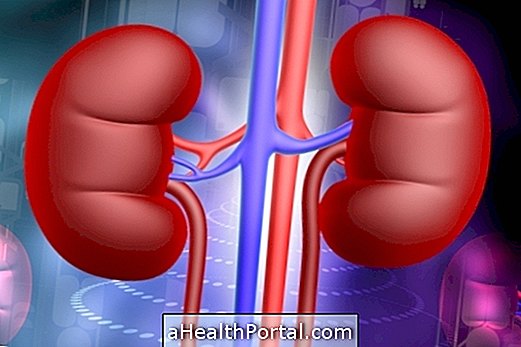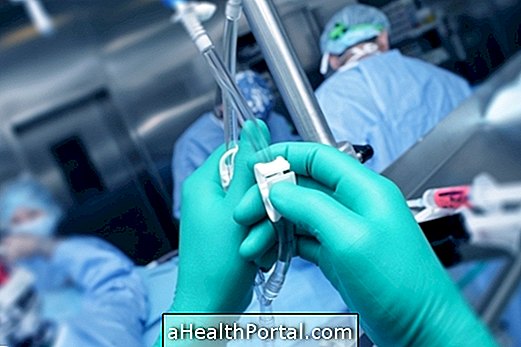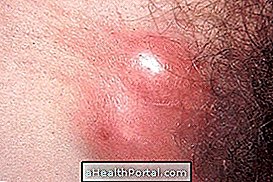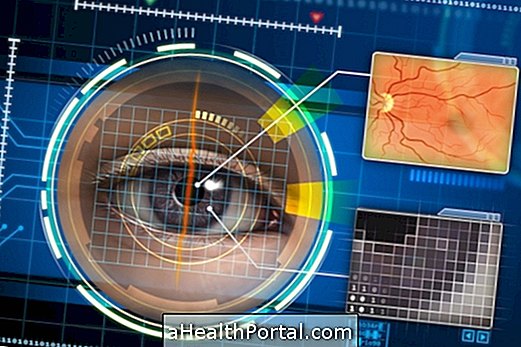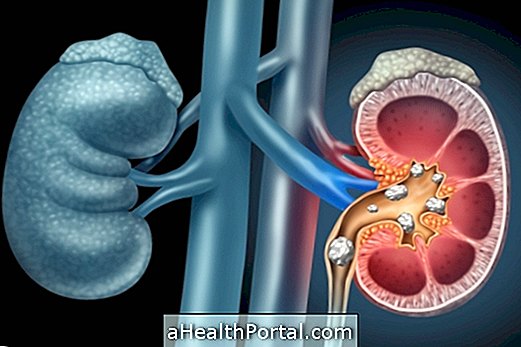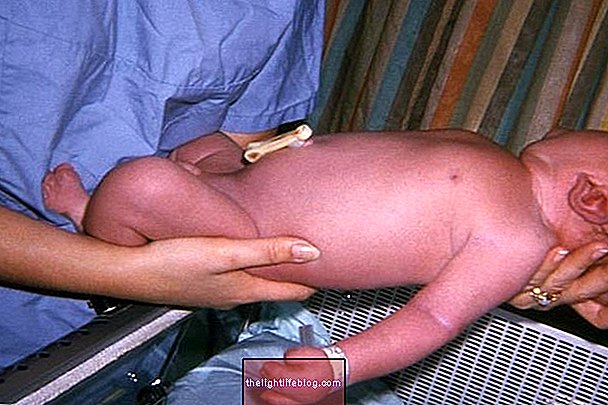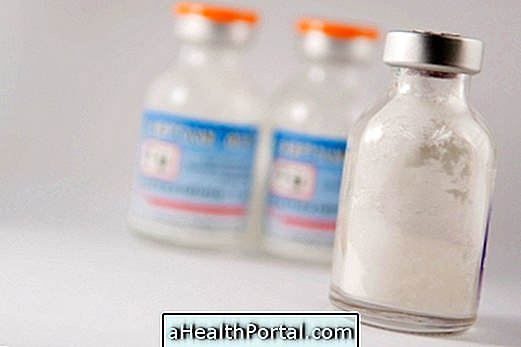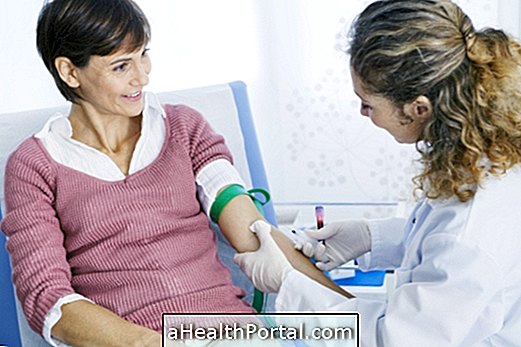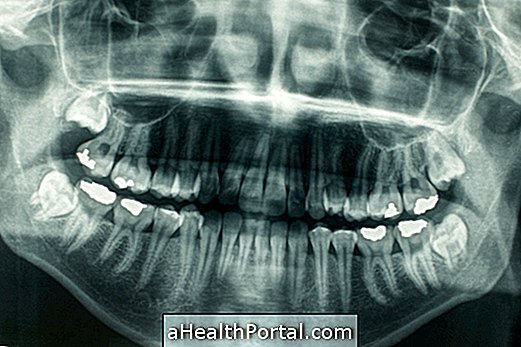Thyroid scintigraphy is an examination used to evaluate thyroid function. This test is done by taking a medicine with radioactive capacities, such as Iodine 131, Iodine 123 or Technetium 99m, and with an apparatus for capturing the formed images.
It is indicated to evaluate the presence of thyroid nodules, cancer, investigate causes of hyperthyroidism or hypothyroidism or inflammation of the thyroid, for example. Check out what are the major diseases that affect the thyroid and what to do.
Thyroid scintigraphy is done free of charge by the SUS, or in private, with an average price of 300 reais, which varies greatly according to the place where it is made. After the procedure, the final images of the thyroid can be described as shown in the figure below:
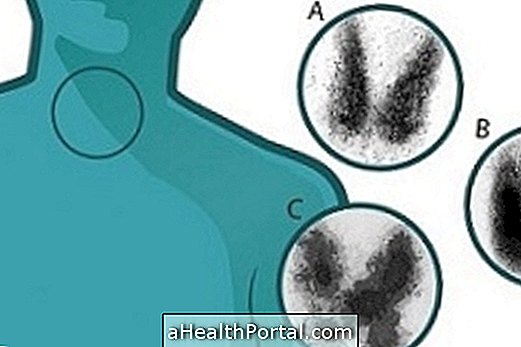
- Outcome A: the patient has a healthy thyroid, apparently;
- Outcome B: may indicate toxic diffuse goiter or severe disease, which is an autoimmune disease that increases thyroid activity causing hyperthyroidism;
- Result C: may indicate toxic nodular goiter or plummer disease, which is a disease that produces nodules in the thyroid causing hyperthyroidism.
The images formed depend on the thyroid's uptake of the radioactive substance, and, generally, a greater uptake with more vivid imaging is a sign of greater functioning of the gland, as can happen in hyperthyroidism, and a below-normal uptake is a sign of hypothyroidism.
What is it for
Thyroid scintigraphy can be used to identify diseases such as:
- Ectopic thyroid, which is when the gland is located outside its normal site;
- Diverting thyroid, which is when the gland is enlarged and can invade the thorax;
- Thyroid nodules;
- Hyperthyroidism, which is when the gland produces too much hormones. Find out what are the symptoms and ways of treating hyperthyroidism;
- Hypothyroidism, when the gland produces fewer hormones than normal. Understand how to identify and treat hypothyroidism;
- Thyroiditis, which is inflammation of the thyroid;
- Thyroid cancer and to check for tumor cells after thyroid withdrawal during treatment.
Scintigraphy is one of the tests that evaluate the thyroid, and the doctor may also ask for others to help with the diagnosis, such as blood tests that evaluate the amount of thyroid hormones, ultrasound, puncture or biopsy of the thyroid, for example. Find out what tests are used in thyroid screening.
How the exam is done
Thyroid scintigraphy can be done in just 1 day or in divided steps in 2 days and requires a fasting of at least 2 hours. When it is done in just one day, the radioactive substance technetium, which can be injected into the vein, is used to make thyroid images.
When the test is done in 2 days, on the first day the patient takes iodine 123 or 131, in capsules or with a straw. Then images of the thyroid are obtained after 2 hours and after 24 hours of the beginning of the procedure. During the intervals, the patient can go out and do their normal daily activities, and usually the test result is ready after about 3 to 5 days.
Both iodine and technetium are used because they are substances that have affinity for the thyroid, being able to concentrate in this gland more easily. In addition to the form of use, the difference between the use of iodine or technetium is that iodine is more indicated to assess changes in thyroid function, such as hyperthyroidism or hypothyroidism. Technetium is very useful for identifying the presence of nodules.
How to prepare for the exam
Preparation for thyroid scintigraphy is to avoid foods, medications, and medical tests that contain or use iodine or that alter thyroid function, such as:
- Foods: do not eat foods with iodine for 2 weeks, being prohibited the consumption of saltwater fish, seafood, shrimp, seaweed, whiskey, canned, spiced or sardine products, tuna, egg or soybeans and derivatives, such as shoyo, tofu and soy milk;
Watch the following video and see which diet is best for iodine therapy:

- Exams: in the last 3 months do not perform examinations such as computed tomography with contrast, excretory urography, cholecystography, bronchography, colposcopy and hysterosalpingography;
- Medications: Some medicines may interfere with the test, such as vitamin supplements, thyroid hormones, medicines containing iodine, medicines for the heart with the substance amiodarone, such as Ancoron or Atlansil, or cough syrups, so it is important to talk to the doctor to evaluate their suspension;
- Chemicals: In the month prior to the examination, you can not paint the hair, wear dark lipstick or enamel, tanning oil, iodine or iodized alcohol on the skin.
It is important to remember that pregnant or breastfeeding women should not do thyroid scintigraphy. In the case of technetium scintigraphy, breastfeeding should be suspended for 2 days after the examination.
The PCI - full body scan exam consists of a very similar examination; however, one is used a device generates images of whole body, being especially indicated in case of research of metastases of tumors or thyroid cells elsewhere in the body. Learn more about full body scintigraphy here.
